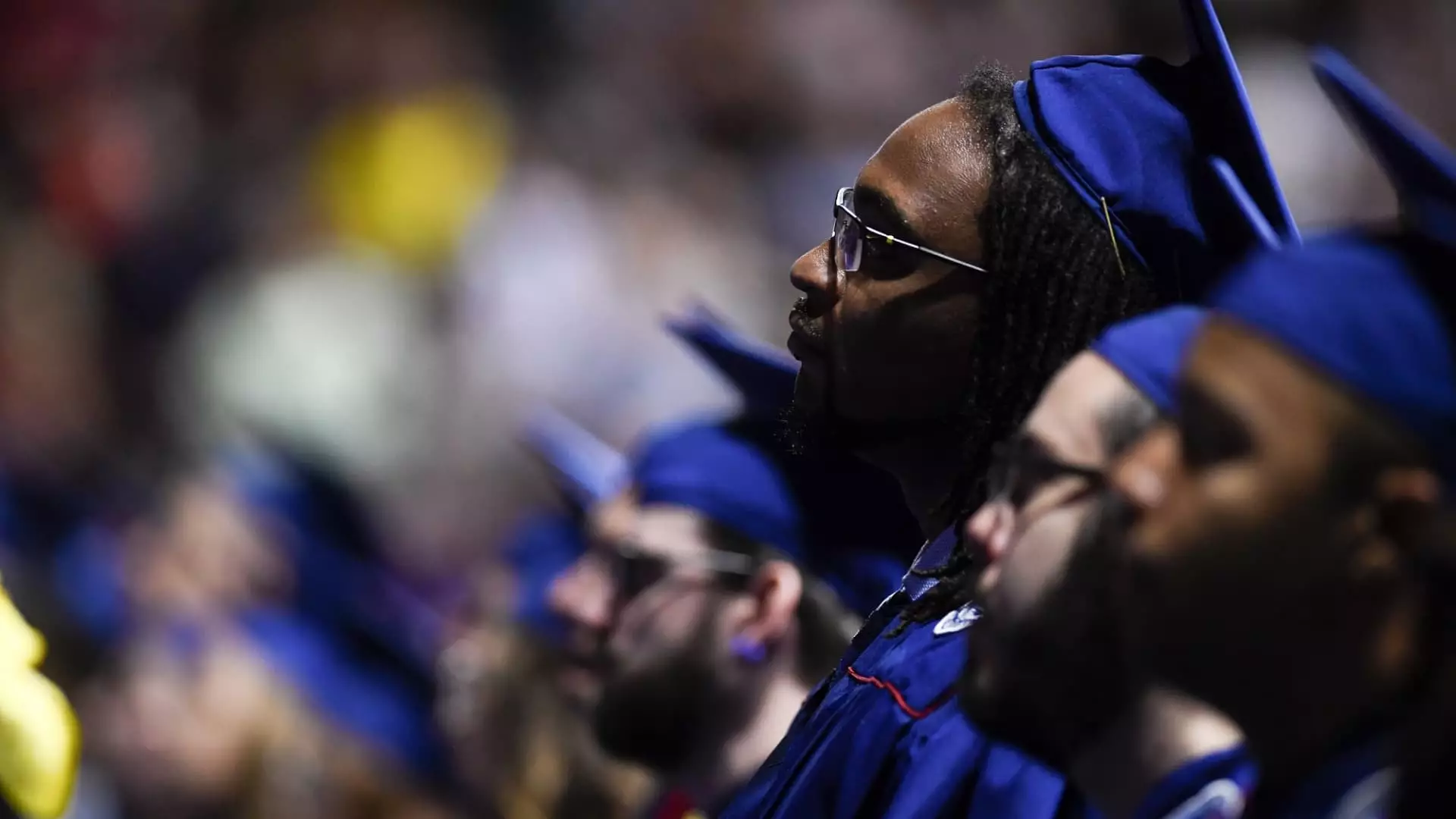In a world where economic stability can seem like a distant memory, today’s graduating class faces a conundrum. The traditional wisdom that champions STEM majors as the ultimate path to success is being challenged by unexpected employment statistics that favor graduates in seemingly non-technical disciplines. According to a report from the Federal Reserve Bank of New York, fields like art history, nutrition, and philosophy show surprisingly robust job prospects compared to their STEM counterparts, such as computer science and engineering. With a national unemployment rate for newly minted graduates hovering at around 5.8%, these statistics demand our attention—and our reevaluation of what we consider valuable in a degree.
The Paradox of the Humanities
The beauty of humanities degrees lies in their flexibility and depth of understanding. While the allure of a lucrative STEM career has long overshadowed the liberal arts, the stark reality is that graduates from fields such as art history and philosophy have proven that they can navigate the job market with remarkable efficacy. For instance, art history majors boast an unemployment rate of just 3%, compared to a decidedly discouraging 6.1% in computer science. This paradox begs the question: Are we overlooking the value of creativity and critical thinking in our rush toward technical skills? As artificial intelligence becomes an omnipresent force in the economy, the demand for inventive problem solvers is skyrocketing, making these seemingly “less practical” degrees more desirable.
Embracing Diverse Skills in Hiring Practices
The corporate world is currently experiencing a seismic shift in its hiring philosophy. Companies like BlackRock are pivoting to incorporate a broader spectrum of educational backgrounds, indicating a growing recognition that innovative thinking and diverse perspectives can yield extraordinary results. This radical reimagining of hiring criteria challenges the narrative that only STEM degrees lead to prosperity and underscores the fact that a person’s ability to think critically, communicate effectively, and empathize can be just as essential in navigating today’s complex business environments. The role of liberal arts graduates is not just surviving; they are thriving in a marketplace that increasingly values soft skills over mere technical proficiency.
The Healthcare Sector: A Beacon of Stability
While data suggests a favorable landscape for liberal arts graduates, it’s impossible to ignore the overwhelming demand for healthcare professionals. The nursing profession, for example, offers an enviable unemployment rate of just 1.4%, a statistic that is remarkable given the volatile nature of employment today. In the face of an economic downturn, such resilience stands as a testament to the essential nature of healthcare roles. During uncertain times, the demand for nurses and healthcare workers intensifies, which leads us to consider the intersection of job stability and earnings potential.
It is crucial to highlight that while the median wage for nursing graduates may not rival that of their finance counterparts right out of school, the stability and job security offered by healthcare careers often outweigh the immediate financial gain from other disciplines. In turbulent economic conditions, the pragmatic choice may oftentimes involve prioritizing a stable paycheck and job security over climbing the initial earning ladder.
Redefining Success in Higher Education
As young adults transition into the workforce, they must confront the perhaps over-simplistic equation that equates success solely with high salaries and prestigious job titles. Economic tumult brings the opportunity for a cultural renaissance, where subjective criteria such as happiness, fulfillment, and meaningful work gain the spotlight in assessments of career success. A philosophy or art history degree could indeed lead to a fulfilling career in ways a computer science degree never could—even if that path is less linear or traditionally celebrated.
In essence, a functional educational system should not dictate a one-size-fits-all approach to career success through the lens of immediate employment data. Colleges and universities must recognize and convey—to both students and employers—the importance of a diversified educational experience that develops essential life skills. As minds evolve and new challenges arise, the definition of readiness for the workforce must embrace the full spectrum of knowledge and experience that liberal arts graduates offer.

